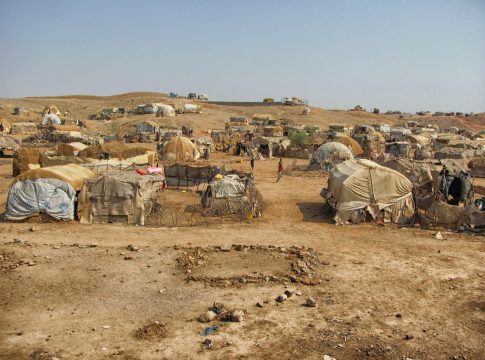Humanitarian Crisis Driven by Organized Crime Displaces Over 1.2 Million People Globally in 2024
GENEVA, Switzerland — A striking report delivered to the UN Human Rights Council on Tuesday reveals that organized criminal activities have forcibly displaced no fewer than 1.2 million individuals worldwide in 2024. Special Rapporteur Paula Gaviria Betancur highlighted this alarming trend, marking a significant yet overlooked humanitarian crisis with serious legal implications.
Organized Crime as a Displacement Catalyst
According to Betancur, organized crime—including trafficking, extortion, and the territorial control exercised by armed groups—has emerged as a leading cause of displacement, particularly affecting regions like Central America, the Sahel, and Southeast Asia. The report emphasizes how criminal entities frequently exploit weak state institutions, often colluding with or enjoying the tolerance of governmental authorities.
“Displacement in these regions is fundamentally arbitrary under international law,” Betancur stated during her presentation. “It violates essential protections against forced movement while perpetuating cycles of confinement and exploitation.”
Legal Implications and Violations of Rights
The report raises critical concerns regarding the violation of displaced individuals’ rights to life, security, and property. The interplay between humanitarian law and human rights law complicates responses, as states often justify militarized action that could extend permissible violence beyond the limits set by human rights standards. The report calls attention to the Global Principles on Internal Displacement and the UN Convention against Transnational Organized Crime, noting that while they offer potential frameworks for action, actual implementation remains sorely lacking.
Critical Recommendations for Action
Betancur’s findings contain several actionable recommendations aimed at addressing these urgent issues:
-
Criminalization of Displacement: States should integrate laws that criminalize displacement linked to organized crime into their domestic legal frameworks.
-
Trauma-Informed Justice Pathways: Establishing pathways for victims that prioritize their psychological and social recovery over punitive measures is essential.
-
Civilian Protection Focus: The report advocates prioritizing the protection of civilians over increasingly militarized responses to crime.
-
Investment in Land Registries: Efforts to resolve land disputes through enhanced registries are necessary to help prevent expropriation.
- Cross-Border Cooperation: Enhanced collaboration among nations is critical to combating transnational criminal networks.
The Special Rapporteur’s insights are expected to significantly influence discussions during the Human Rights Council’s 59th session, which will continue through July 11. As the world grapples with escalating organized crime, immediate action is required to address the resulting humanitarian fallout and safeguard the rights of millions at risk.
This developing story underscores the intricate relationship between organized crime and global displacement, shedding light on a crisis that demands urgent international attention and intervention.

Focuses on crime, public safety, and regional events.
Bio: Marcus is a community-based journalist passionate about reporting impactful stories that matter most to readers.

